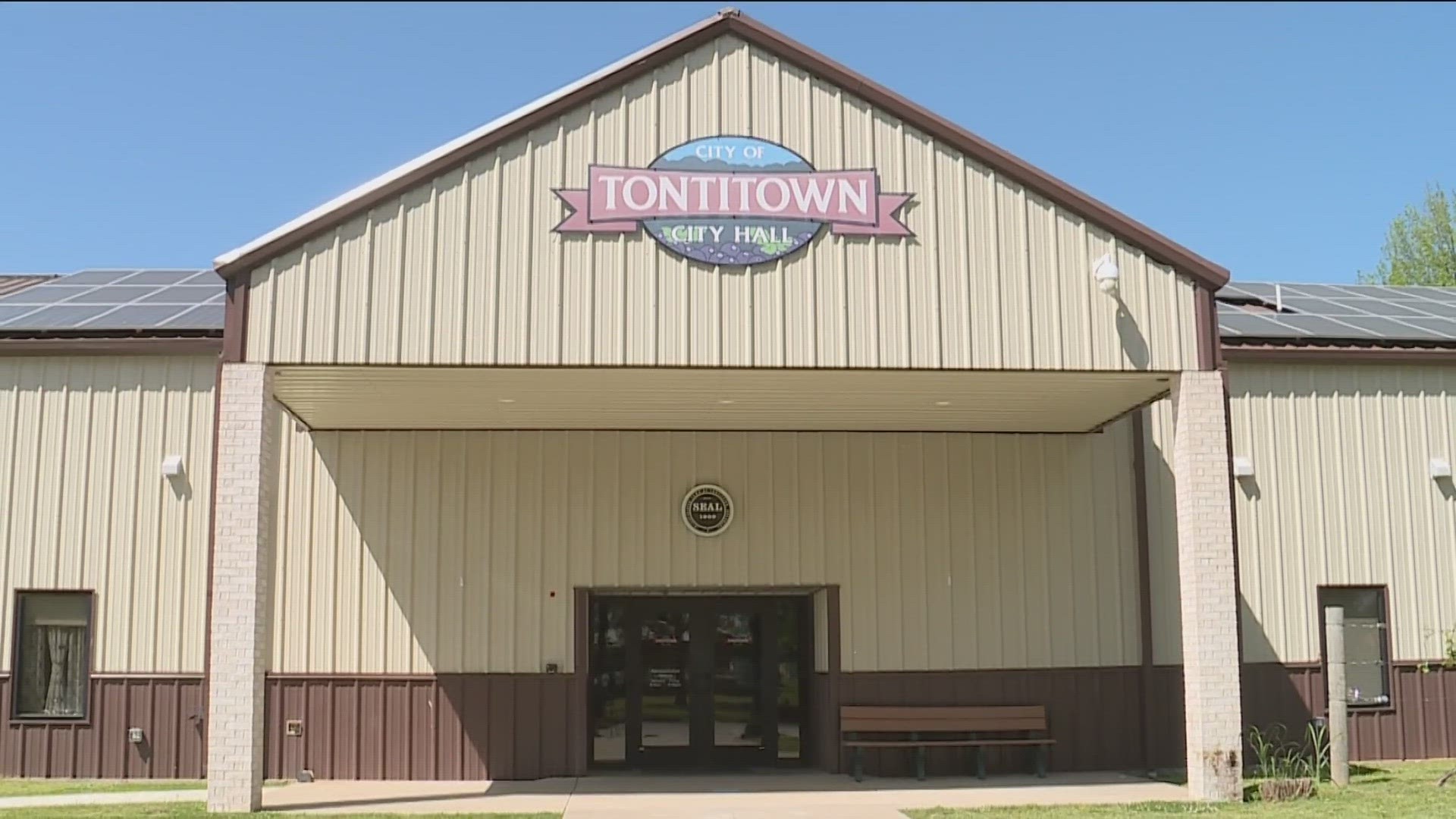TONTITOWN, Ark. — On Tuesday night the Tontitown City Council voted to approve adding what's called an "impact fee" to any residential or commercial construction projects.
Impact fees are defined as "a way for local governments to require new developments to pay a proportionate share of the infrastructure costs they impose on the community," according to a study done by Duncan Associates for the City of Tontitown.
"That's the impact of growth," said Mark Latham, City Planner for the City of Tontitown. "I know that everybody's getting excited about the fact that we're gonna have a million people in here by 2050. But we still need to be able to have people move around."
15 years ago, Tontitown was just around 2,500 people. Now, it's well over 6,000, according to Latham.
"It was not prepared for that kind of growth when in talks for roads," Latham said. "We've been growing way too fast. In my professional opinion, we should be growing at about 3% to 5% a year, that's managed growth. But when you look at 25% to 30%, you can't manage. You can't build enough infrastructure to be able to support that growth."
Impact fees can go towards building new roads and public safety. The city plans to hopefully relieve some congestion on Highway 412 and continue to support the fire and police department maintenance with these funds.
"It's basically for capacity. So you're reducing the capacity if you create a new street, that actually would take pressure off one of the other ones," Latham said.
"We've got to have some equipment, and we've got to have manpower," Latham added. "It cost almost $150,000 to put a police uniform on with a cruiser and everything else. So that's the impact of growth."
Local cities with larger populations differ on their impact fees. The City of Springdale does not have impact fees, but the City of Fayetteville does.
"These are big cities that can create massive amounts of sales tax that they're basically using for these roads. And so we don't have a massive amount of sales tax," Latham said.
While this would not affect current residents, some people who spoke against the impact fees at Tuesday's meeting feared that this could attract less developers to the city, especially affordable builders.
"We know this impacts us and impacts our buyers ultimately," said Michael Berry, who works for Schuber Mitchell Homes. "It's more challenging for us to sell homes, but that's just us selling homes. Really the fees challenge the teachers who are trying to buy a home and the firefighters and police officers and nurses and mid-level managers and city employees."
Latham said the impact fees immediately went into effect. They range from $731 to $7,570.
Watch 5NEWS on YouTube.
Download the 5NEWS app on your smartphone:
Stream 5NEWS 24/7 on the 5+ app: How to watch the 5+ app on your streaming device
To report a typo or grammatical error, please email KFSMDigitalTeam@tegna.com and detail which story you're referring to.

